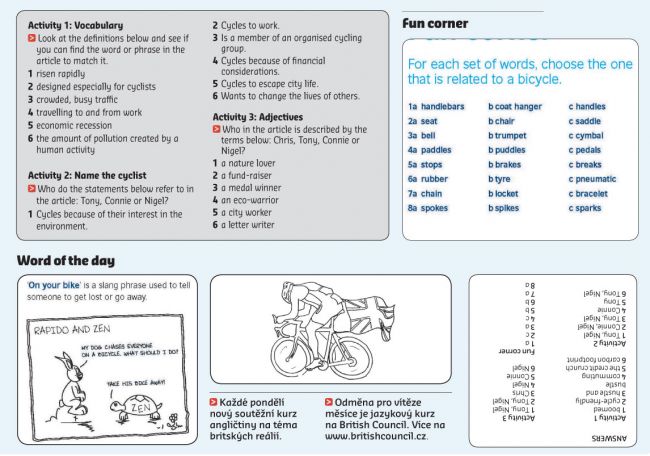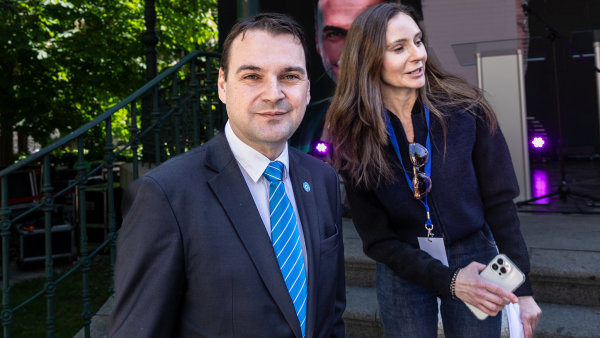Sporting success
Cycling has become more popular in the UK recently for a number of reasons. One of those reasons, however, must be the three gold medals won by the British cyclist Chris Hoy at the Beijing Olympic Games in 2008. In fact, the UK won more medals in cycling than in any other sport. Chris Hoy won his medals on the velodrome indoor track, but there were also medals in road racing. With mountain bike and BMX also big in the UK, it's not a surprise that there has been a relaunch of the Tour of England road race in 2009.
'Touring Tony'
Cycling is not just a sport though, and Tony is just one of the many people who like to cycle long distances because they want to enjoy the natural beauty of the UK. He belongs to Sustrans, a volunteer organisation created in the 1980s. Sustrans has combined quieter roads, disused railway tracks and bridleways to create the National Cycle Network of designated cycle-friendly routes spanning cities and countryside. The best known of these routes is the 140-mile C2C ('sea to sea' or 'coast to coast'). An average of 15,000 cyclists follow the whole route every year (and hundreds of thousands do shorter sections of it). Tony has been riding this route for a few years now, along with his local friends. They do it to raise money for charity, but also because they enjoy the views across England's scenic landscapes and like to get away from the hustle and bustle of the city.
'Commuting Connie'
Connie lives and works in London and, like 0.5 million Londoners every day, she travels to and from work by bike. Since the introduction of the Congestion Charge (where drivers pay to bring a car into the centre of London during working hours) in 2003, the capital city has seen a 48 per cent increase in the number of people commuting by bike. Connie says that cycling to work takes the same amount of time as it would by bus or tube (London's underground train). Biking is cheaper too (important during a credit crunch) and keeps her fit.
Of course, people cycle to work in towns and cities across the UK. In 2008, in order to promote the benefits of cycling more widely, the UK government organised a competition to select the country's first 'cycling town'. The city of Bristol won and received money to improve its cycling infrastructure (more cycle lanes, increased parking for bikes, etc.) and make cycling on roads generally safer.
'Eco Nigel'
Nigel is a campaigner. In addition to travelling to and from work by bicycle, doing some charity rides and generally enjoying cycling, Nigel runs a local campainging group and helps organise the 'critical commute' - where cyclists gather every last Friday of the month and cycle into work together. For Nigel, cycling is about saving the planet - a cost-effective way of reducing our carbon footprint today. He regularly writes to his Member of Parliament, to ask her to support his campaign. He writes letters to the local newspaper to explain the benefits of cycling and lobby for better cycling infrastructure, and takes part in demonstrations and activities to show the public what cycling is all about.
The bicycle was invented 200 years ago. So why have sales suddenly boomed in the UK? Why are so many people choosing to change their lifestyles?
 Přidejte si Hospodářské noviny
mezi své oblíbené tituly
na Google zprávách.
Přidejte si Hospodářské noviny
mezi své oblíbené tituly
na Google zprávách.
Tento článek máteje zdarma. Když si předplatíte HN, budete moci číst všechny naše články nejen na vašem aktuálním připojení. Vaše předplatné brzy skončí. Předplaťte si HN a můžete i nadále číst všechny naše články. Nyní první 2 měsíce jen za 40 Kč.
- Veškerý obsah HN.cz
- Možnost kdykoliv zrušit
- Odemykejte obsah pro přátele
- Ukládejte si články na později
- Všechny články v audioverzi + playlist





